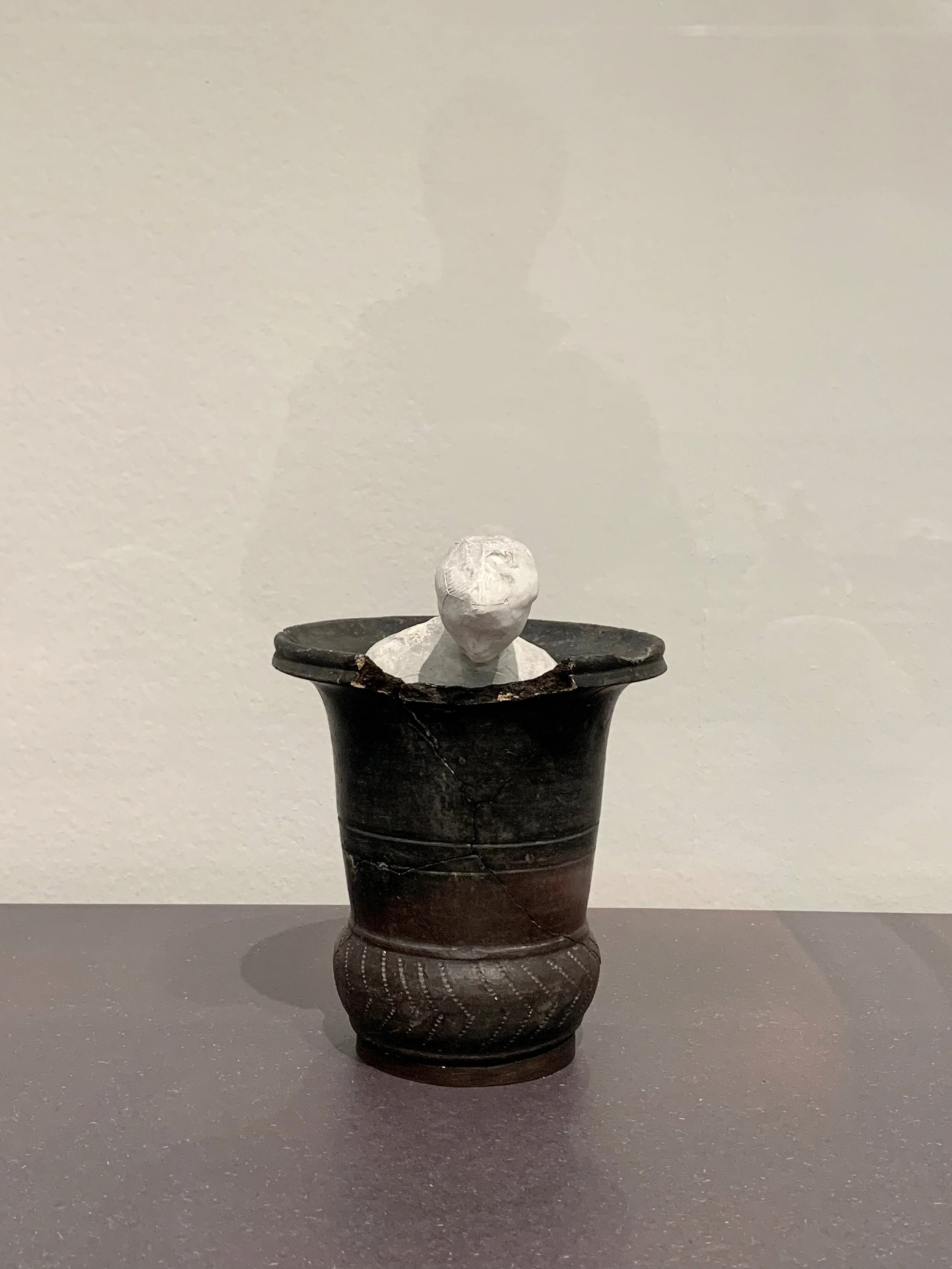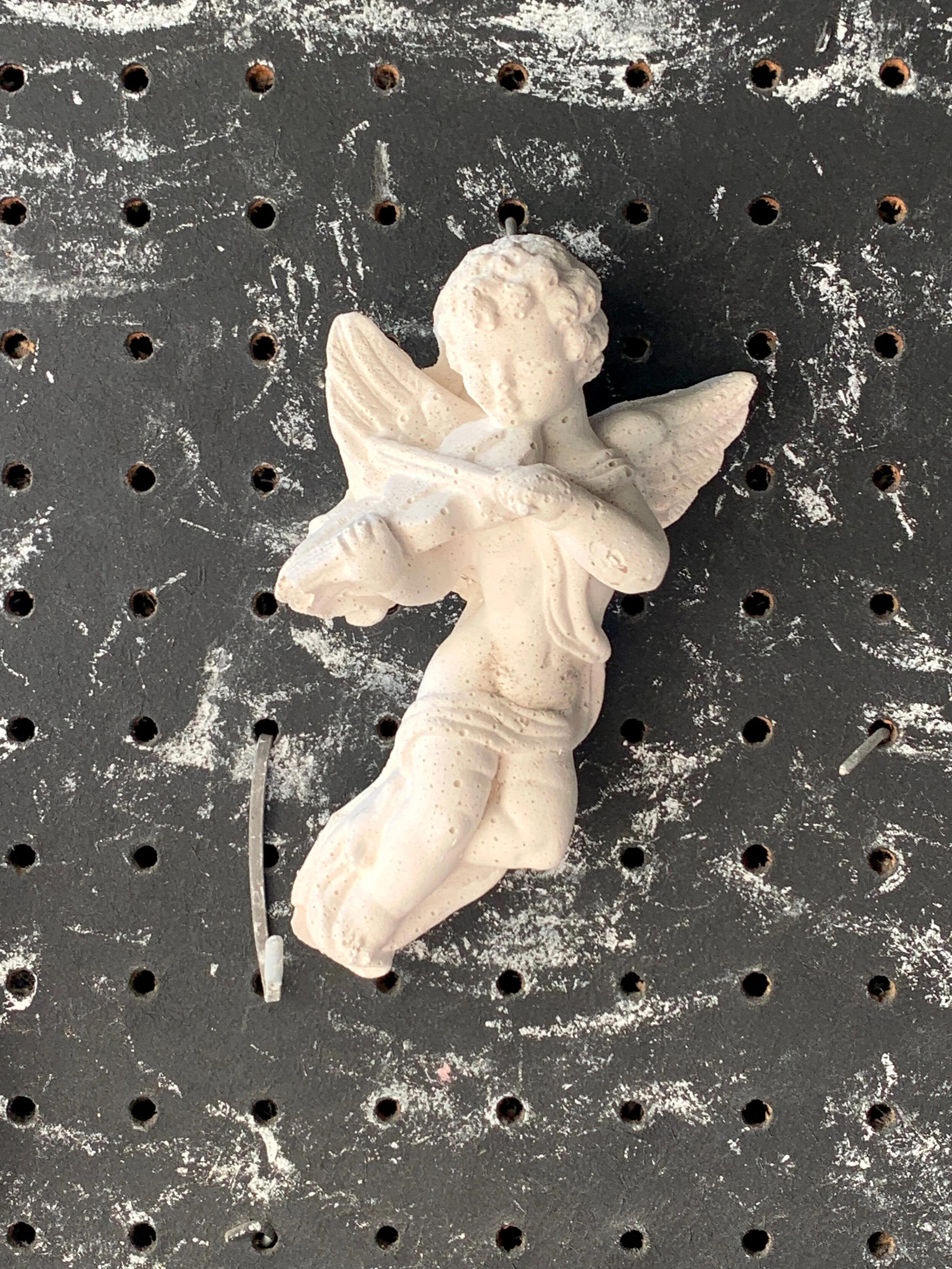Dear Fred,
There was a moment in the talk you gave at Stanford, after the talk you gave at the library in Oakland, where you said something like, first, we have to confront our own wretchedness.
I think about this often. I thought at first it might be an interpellative understanding. Then the we began to seem like a state or machine that can be entered and driven around menacingly like an SUV. And then perhaps like a self-driving car that we sit in anxiously by ourselves, being soothed with inoculating flows of simulation.
I tend to think we are fungible and that we can access similar sentiments beyond the limitations of faraway ideas like Uzbekistan, Yemen, and Ireland. Living next to the ocean for many years has estranged me from the beaches. When one doesn’t particularly want or trust power, the world feels inhospitable. One might look for small islands of non-inferno to make archipelagos of sociality and respite.
It’s a little embarrassing to share that I have a ‘google alert’ set for you. I get an email from time to time that you will be having a talk with some imposing institution and often, some overlooked or under-appreciated artist or scholar. I think you might have been the last person outside of my family that I hugged before Covid began. Following you around for that week of lectures was really one of the great learning experiences of my life. And more than the content, it was your disposition, or as you put it approach. Throughout this pandemic I've been thankful to drop in on your conflicted and consoling addresses. I remember your son coming into a zoom window on a talk called the porch with nia love's lilliputian dancing and deep breathing amplified through her microphone. There was a kind of sensorial reconfiguration. Offering new valences as solace for the creeping grid. Your son offered you a bite from his plate, but pulled away when you went for the golden stuff and you ended up with a laugh and a consolatory vegetable. It's funny the details we hold onto.
Since I saw you last, I moved to London for graduate school at Goldsmiths. It's my first time back in an institution since I left high school twenty years ago. It took me a little while to understand how situated the undercommons was in academia. From this too-early space of naive horizons, I feel a sense of relief. The unavoidable and unfairly distributed perennial suffering—and a sadness towards the austerity of time and space—and also a sense of relief. I heard you talking with Vijay Iyer about this music group you've been a part of for so many years and how it might have been the greatest educational experience of your life. This sounds like a dream to me. And I imagine the whole thing is worth it, even for just one friend.
I’m in an ecology program and interested in studying with Forensic Architecture. They represent, for me, this paragon of collectivized applied aesthetics towards political ends. At the same time, I hold the paradoxical and sacred love for an art that is unnamable and unbounded. I streamed a conference yesterday from the art history section of the Goldsmiths library that FA convened in Berlin with Nitasha Dhillon and Amin Husain (of Decolonize this Place) and Nan Goldin. It felt close to home and also made me wonder what’s more addictive; painkillers, art, or institutional power?
After the conversation I wrote a note to some of the FA people I’ve been corresponding with. I’ll include it here as I often feel like I'm writing openly:
Dear Eyal, Susan and Christina,
Thank you for the conference.
There was a little bit of trouble with the livestream but I caught most of the last two talks. In the second panel I appreciated the range of artist-activists who embody the tensions of that hyphenate and are producing works worth giving attention to and reproducing.
The feed cut for a while and then I heard the question of how to include more forms of life and intelligences into the juridical process. And its potential excesses (ooo, new materialism’s, etc)—which recalled a moment in Susan’s recent material witness talk, where she mentioned Arthur Jafa’s hesitancy to grant personhood to everything under the kitchen sink at this historical juncture where that privilege is still so unevenly distributed at the anthro-level.
There’s something unsettling about how extrahuman agencies get determined. I get the sense that there’s a certain kind of libertarian technocratic planetary ‘sensing’ and governance movement forming along the Bratton-Berggruen axis (for example) that mobilizes a data supremacist, anti-pluralist, greenwashed tech-geoengineering position towards its consolidation.
To the slowness of the courts and the use of alleged technological incompetency, I would add a general susceptibility to affective-rhetorical mediated evidentiary assemblages of which one could anticipate a kind of forensic visualization arms race. And that despite its sophistication can be superseded by the capricious and arbitrary juridical contingencies that Irit pointed out in that same material witness talk.
There's a Lordeian echo from the impasse lamented in the earlier panel on artists and institutional critique.
I would like to learn more about some of the current projects regarding arms dealing in Yemen, European instigation in Libya, and Namibian reparations. I'm also interested in forensic oceanography.
I really appreciated your closing statement, Christina, and I'd like to contribute more to the investigative commons. I'd like to think more together and offer my modest abilities and openness to learning towards the consequential projects you are collectively realizing.
Kindly,
Perry
I’ve been reading some books by Byung-Chul Han about rituals and entertainment. I've been sitting with this idea that rituals in time are like objects in space. That they help orient us and make our world habitable.
Yesterday in the art history section of the Goldsmiths library I watched a stream of a show called Transmissions organized by Tosh Basco and it had that video you made dancing with Wu Tsang that I saw some years ago. I remember loving it. It's such a beautiful shimmer.
There are some things you almost want some distance from so they don’t get so pinned down with epistemes, gridded with information.
I went to an opening at David Zwirner for the paintings of Noah Davis. I have to confess I went to this like one goes to a theater to see a tragedy. Actually like a tragedy matryoshka. A simulated Underground Museum in the upper galleries. A choreography of power relations. The flashy power of celebrities with their hulking bodyguards, the discreet power of the collectors in their quiet ostentation. The aspirati. The whole thing produces an intoxicating mist that confuses the senses. The bright white light is disorienting even further. I saw an artist from a foundation Noah was a part of in New York and the conversation turned towards Gossip in the ways it so often does. Rituals as Stockholm syndrome. Was this the wretchedness you were talking about? What does it even mean to bring Donald Judd to West Adams?
I saw a show last week at the Chisenhale from the artist Abbas Akhaven. He made a version of the colonnade that led to the Palmyra arch out of earth and put it on a giant chroma key green screen. When you walked into the large hall you gazed on it beneath a pair of speakers playing an inhospitable and inoculating drone. I’m not sure I would have even noticed it, if it wasn’t for the invitation of a local poet to experience the work with all my senses. I also began to notice the sweetness of the hay clumped in the earth. On the roof in chalk was an excerpt from Jean de La Fontaine’s fable of the monkey and the cat. The group that convened for this poetry event reminded me of the group from the talk you gave at woodbine. It felt hospitable.
Kindly,
Perry







































































